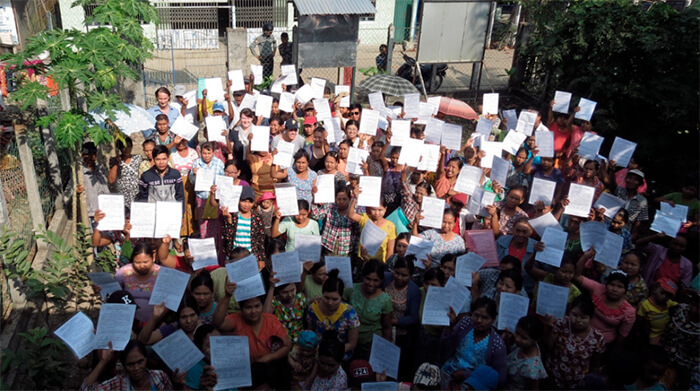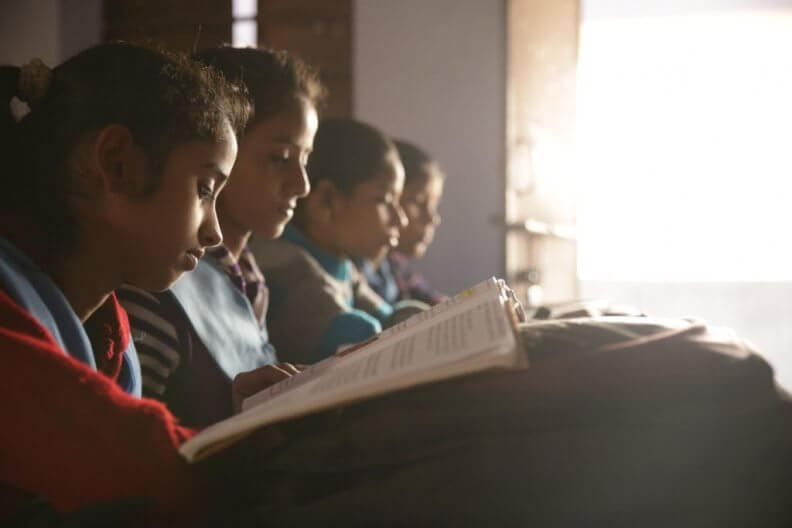A Letter from Our Founders: Top 10 Themes of 2020
Reflections in the form of 10 R’s
1. Resilience
While the direct and indirect effects of COVID-19 posed numerous challenges to our grantees over the past year, we witnessed extraordinary resilience at every turn. Because our funding is unrestricted, the organizations that we fund could adapt quickly and nimbly. We saw many jaw-dropping pivots coupled with tenacity and determination to address unmet needs with excellence and grace. The organizations in our portfolio stepped up to keep their impact on track as best as possible while ensuring that their teams and the communities they supported were safe. As one example, the agriculture-focused organizations we support—One Acre Fund, Proximity Designs, and BRAC—all modified their training and input distribution practices to ensure the majority of those they support were able to plant and harvest on time—minimizing further impacts to their income and food security.
Still, there is much work ahead, with the World Bank forecasting the first increase in extreme poverty in more than two decades. We remain committed to our mission focused on making a meaningful difference in the lives of the world’s poorest people, and we are proud to share that in 2020 we formally joined the Giving Pledge.
Photo: Pratham Education Foundation
2. Results
Despite the challenges associated with the global pandemic, we are elated that our philanthropy made a meaningful difference in the lives of 880 thousand of the world’s poorest people in 2020. This brings our cumulative total to 4 million people since the launch of King Philanthropies in 2016! In addition to this direct impact through our support, King Philanthropies has leveraged and influenced funding from other donors that we estimate has reached an additional 205 thousand lives (with more than half reached this past year).
Lenatha Kisega, a One Acre Fund farmer from Iringa District, Tanzania, was able to grow enough maize this year that her family has not struggled to obtain enough to eat during the pandemic.
Photo: One Acre Fund / Dorcas Tinga
3. Remarkable Team
We continue to grow and build an extraordinary team and benefit from a wise and helpful board. In 2020, we were delighted to have Ahana Gunderson, Jenn Hipple, and Andy Perkins join our King Philanthropies team, with Kartick Kumar to start early 2021.
4. Resolve: manifested in our newly codified Values
In 2020, we undertook the important work of building out our values-driven culture. Our team identified and codified King Philanthropies’ values, which provide clarity and decision guidance at every phase of the organization’s functioning (including recruitment, orientation, performance management, team interactions and decision-making, strategic planning, and execution).
King Philanthropies’ Values:
5. Redesign of our King Philanthropies’ Website
We are thrilled with our new website, which was developed in 2020!
6. Recognizing and responding to the severity of climate change
Our mission is focused on making a meaningful difference in the lives of the world’s poorest people. They are the most vulnerable to climate change and so in 2020 we piloted a number of grants at the intersection of Poverty + Climate. For example, we created the King Climate Action Initiative (K-CAI) at J-PAL at MIT. Over the next 10 years, K-CAI aspires to contribute to climate-related policy decisions and programs that improve in the lives of at least 25 million people living in poverty. K-CAI will collaborate with decision makers around the world to conduct rigorous randomized evaluations and scale up effective programs and policies that address four of the most pressing climate-related challenges: mitigation, pollution reduction, adaptation, and energy access. In addition to K-CAI, Bob is heavily involved in the Kennebunkport Climate Initiative, which aims to educate, inspire, and activate youth voices for climate action—with a bold goal of reaching 10 million youth in the coming years!
7. Rejoicing in our impact achieved by King Essentials grants
2020 was a formidable year for the social sector with big drops in funding, belt tightening resulting in layoffs and program cuts, and a pause on new growth and expansion opportunities. Our King Essentials partners were not immune to these challenges, but instead found the “silver lining” and adapted and pivoted their programs and teams. Many accelerated transitions to digital tools, such as Pratham launching remote learning content for out-of-school children via SMS/Whatsapp, or Proximity Designs shifting their agronomy services from in-person to online channels, thus enabling greater accessibility at improved cost efficiencies. Others, like Last Mile Health and One Acre Fund, stepped up as leaders in the rural communities where they were already present, securing and distributing much-needed Personal Protective Equipment in areas often overlooked. Still others moved their core activities online, such as Landesa Myanmar shifting its in-person government advising to Zoom workshops. Remarkably, in a year where movement was restricted across villages and face-to-face meetings were limited, with our support Landesa Myanmar managed to secure land tenure for 423 thousand people—nearly double what they were able to do from the first three years of our partnership! Other big wins came from our agricultural sector grantees—One Acre Fund, Proximity Designs, and BRAC Liberia—who were able to provide training and inputs to smallholder farmers that improved incomes, reduced food insecurity, and built climate resilience for nearly 200 thousand individuals across Myanmar, Liberia, and Tanzania. We also saw significant impact from our first year of support for CAMFED in Tanzania where they used King Philanthropies support to reach more than 155 thousand girls and young women to increase their educational attainment and leadership development.
Mangrove-dependent communities with community forest certification receive thousands of saplings from the Forest Department for replanting. Pictured here, communities replant mangroves at a Landesa site in Tanintharyi Region, Myanmar.
Photo: Landesa
8. Relishing our Global Scholars
Our Global Scholars community grew to 264 scholars from over 43 countries. At an undergraduate level, we have 65 Scholars—23 King Scholars are currently enrolled at Dartmouth College and 22 King-Morgridge Scholars are currently enrolled at the University of Wisconsin-Madison. There are 196 Knight Hennessey Scholars, all of whom participate in the King Leadership Program. We also have a growing alumni community, including 10 undergraduate alumni and 5 from the Knight Hennessy Scholarship.
The challenges of COVID did not deter our Global Scholars from actively engaging in our community, remote internships or academic life. All college and university partners found creative ways to engage scholars in dynamic community and leadership experiences, including a virtual Leadership Week for Dartmouth College.
In 2020 we launched a new video series featuring the Class of 2023 entitled, “In their Voices.” We also launched Season Two of the Humans of the Global Scholars Program, sharing glimpses of our scholars’ journey to date. This supplements the podcast series featuring scholars from the class of 2022, Global Scholars On Air.
Welcome for the King Scholars at Dartmouth class of 2024.
9. Rising to the challenge at Stanford Seed and the King Center on Global Development
Though COVID-19 halted Stanford Seed’s core in-person activities, the Seed team pivoted quickly and thoughtfully in the first half of the year to deploy a set of virtual programs that focused on strengthening the existing network. The Seed team began this pivot with a series of webinars aimed at helping network members quickly adjust to a new normal in the context of COVID-19, and then it continued to roll out new virtual programs including “sprints” (two-week programs on specific business topics), a “Buddy” program that provided support to more than 670 leaders, and a fully-remote internship offering. The Seed team is now exploring how these virtual offerings could either enhance previously existing offerings or continue on their own in 2021 and beyond.
Photo: Stanford Seed
This fall, we were thrilled that Pascaline Dupas assumed the Faculty Director role at the King Center on Global Development—a research center at Stanford University that turns pathbreaking scholarship on global poverty into real-world results. This year, the center addressed a broad range of challenges in global development and poverty alleviation, from examining effective wastewater sanitation in Senegal to promoting women’s political participation and representation in India. Recognizing the pandemic’s impact on poverty and development in low-and middle-income countries, it also increased support for work on COVID-19, as well as on other, systemic, development issues.
Pascaline Dupas, Faculty Director, King Center on Global Development
Rod Searcey
10. Restart!
We bid a resounding Goodbye to 2020; we welcome 2021 with anticipation, joy, and optimism!

